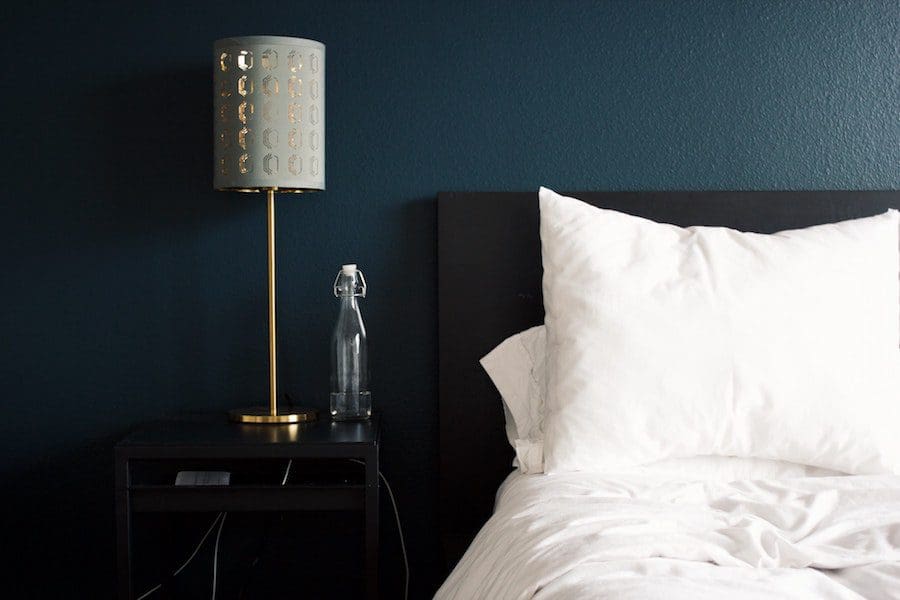Full Disclosure: Clicking on these links could mean a tiny commission for me, at no extra cost to you.
Have you ever noticed that when you don’t get sufficient sleep, you tend to be crankier, more stressed, and more tired the next day? Sleep deprivation has both short-term and long-term physical and mental health consequences. It can trigger depression, anxiety, PTSD, and many other mental health disorders, all the while just not making you feel that great in general. Sufficient sleep is necessary to keep the body and the brain healthy. In this article, we’re going to discuss how sleep affects mental health and the link between sleep deprivation and mental health disorders.
The Relationship Between Sleep and Mental Health

Did you know that a lack of sleep can trigger depression, anxiety, PTSD, and other mental disorders? The relationship between sleep and mental health is complex. Most studies show a bidirectional relationship between sleep and mental health, meaning a sleep disorder can be both a cause and a symptom of mental health disorders.
Good, restful sleep is imperative to the functioning of your brain and ultimately, your mental health. The body goes into repair and recharge mode when you sleep and without regular quality sleep of at least 6-8 hours each night, your brain functioning, mental and physical health can be affected. This can leave you feeling grumpier in the morning, negative intrusive thoughts, and emotional instability.
And that’s only the beginning. The symptoms you experience from sleep disorders or insomnia can then trinkle into other aspects of your life, disrupting things, such as your work ethic, family life, finances, etc.
Impact of Sleep on Mental Health Disorders
Sleep is interlinked with your mental health, and any mental illness you may be dealing with. It’s crucial to look at your sleep patterns and see if they are potentially causing you to experience anxiety or depression, or if your mental health concerns because caused by sleep deprivation. Speaking with a healthcare professional or online therapist can help you navigate through this process too.
Stress and Sleep
Stress drastically affects your quality of sleep. When you’re going through a stressful time or event, you may even experience temporary insomnia or chronic insomnia if your stress is long-lasting. On the other hand, lack of sleep can be a great risk factor for anxiety as insufficient sleep causes an increase in your stress hormone (cortisol), making you feel more anxious and unable to relax and rest. It’s a vicious cycle no one wants to find themselves in and one that can be deterred with a few stress management techniques and some healthy bedtime habits.
Anxiety and Sleep
Anxiety is actually one of the most common mental health disorders experienced in teenagers, young adults, and older people. It can be a major symptom of sleep deprivation or insomnia or the cause of it. Approximately 75% of people with generalized anxiety disorder experience insomnia or other sleep disorders. The constant worrying, stress, and fear associated with anxiety can cause racing and repetitive thoughts that keep the brain on high alert, even when it’s time to wind down. People with anxiety may also experience nightmares, night terrors or panic attacks during sleep. On the other hand, insomnia can potentially worsen the severity of anxiety as your brain and body aren’t getting the rest needed to function fully or properly.
Depression and Sleep
Depression is one of the many mental health disorders that can be the cause or symptom of poor sleep. Approximately 75% of people with depression are reported to have insomnia, with others reporting hypersomnia (sleeping too much), which is another sleep disorder commonly associated with depression. You either can’t sleep because of depression or you sleep too much because of your depression. However, insomnia can also lead to causing depression. People with insomnia are significantly more likely to develop depression, according to some studies. Poor sleep cycles can also worsen depression, so it’s important to treat insomnia early on, whether it’s with natural sleep aids or speaking with your healthcare provider or therapist.
Bipolar Disorder and Sleep
Bipolar disorder is a mental disorder that causes unusual shifts in mood that can be both high (mania) and lows (depression). Approximately 70-99% of people with bipolar disorder also have insomnia or other sleep-related problems. Manic episodes can cause you to feel a rush of energy, racing thoughts, and high adrenaline, making it feel impossible to relax and get the rest you need, whereas low episodes can make you sleep more than usual (hypersomnia). Both drastically disrupt your quality of sleep. However, because sleep disorders can be a cause or a symptom of mental health disorders (the bidirectional relationship), treating insomnia and improving your sleep can help reduce the severity or impact of bipolar disorder.
ADHD and Sleep
Sleep disorders are common in ADHD, with approximately 65% of adults and 25% of children with ADHD experiencing insomnia, reported symptoms such as difficulty falling asleep, frequent awakenings, restless sleep, and hypersomnia. Interestingly, many ADHD symptoms are similar to symptoms of sleep deprivation, such as forgetfulness and difficulty concentrating. People with ADHD also have a higher chance of developing other sleep disorders, such as obstructive sleep apnea and restless leg syndrome.
Bad Sleep Habits You Need To Press Snooze On
No more binge watching Netflix at night. The hectic lifestyle and numerous digital devices we use every day have started to take over precious sleep. People simply don’t have the time to take a couple hours to rest and unwind after working all day, running the kids around, taking care of the family duties and then, getting the kids to bed. At that point, we’re either too busy stressing about the next day or too exhausted to even stay away to do some self care activities. But a little can go a long way when trying to improve your sleep, like eliminating these bad sleep habits:
- Watching TV until you fall asleep
- Using your smartphone or tablet within the hour you want to fall asleep
- Coming home and jumping right into bed without any time to unwind
- Laying awake in bed
- Eating a large meal before you try to fall asleep
- Trying to sleep in an environment that doesn’t feel good (too hot, too cold, etc.)
- Napping for too long during the day
- Using your bedroom for activities other than what its intended for (making it a multi-purpose room)
- Having a stimulant before bed (Caffeine, alcohol, cigarettes, etc.)
- Inconsistent bedtime routine
- Exercising too close to bed
It seems like a lot at first glance but these bad sleep habits can gradually be improved on and eliminated. The point isn’t to stress about how many bad sleep habits you have or need to work on. Instead, let this list be a reminder of the simple goals you want to work on over time. It could be as simple as not watching TV in bed anymore or shutting down devices an hour before you go to bed.
Tips for Improving Sleep Quality and Ultimately, Your Mental Health
Perhaps it’s easier to look at the ideal sleep habits in a different way. Here are some tips for improving your sleep quality and bettering your mental health:
- Limit screen time 1-2 hours before sleep
- Establish a regular sleep schedule where you wake up and go to sleep at the same time every day (Yes, even weekends!)
- Use sleep essential oils – spritz your pillow and sheets, use a lavender roller on your temples
- Improve your bedroom environment with therapeutic accents, such as salt lamps or sleep crystals in your bedside
- Set the temperature of your room to your preference
- Say NO to coffee and alcohol before bedtime
- Drink chamomile tea in the evening to induce sleep naturally (and calm anxiety)
- Practice meditation to relax the mind before going to sleep
Sleep Aids
For an extra dose of sleepy support, add these sleep aids into your nightly self care routine.
- Best for Sleep Supplement → Sleep Breakthrough
- Best for Yoga → Yoga Download
- Best White Noise Machine → Amazon and Yoga Sleep
- Best for Therapy →BetterHelp
- Best for Breathwork → Inward Breathwork
- Best for Mindfulness → Mindfulness App
- Best for Weighted Blankets → Nuzzie
- Best Sleep Tracking Device → Muse and Sleep On Health
- Best for Weighted Pillows → Quiet Mind
- Best Blue Light Filter Glasses → Spektrum and Sleep On
- Best Anti-Snoring Devices → Z Quiet
- Best for Supplements → 88Herbs
- Best for Mattresses → Puffy and Yoga Sleep
Getting sufficient sleep every night is crucial for physical and mental health. Try implementing these healthy sleep habits and see how they improve your mental health.
Seek immediate professional help if you have trouble sleeping or are experiencing any mental health disorders.

.jpg)









